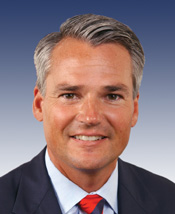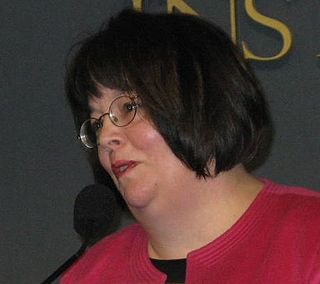A Quote by Ajit Pai
In the Telecommunications Act of 1996, the government called for an Internet 'unfettered by Federal or State regulation.' The result of that fateful decision was the greatest free-market success story in history.
Related Quotes
Beginning in the Clinton administration, there was, for nearly two decades, a broad bipartisan consensus that the best Internet policy was light-touch regulation - rules that promoted competition and kept the Internet 'unfettered by federal or state regulation.' Under this policy, a free and open Internet flourished.
It is federal, because it is the government of States united in a political union, in contradistinction to a government of individuals, that is, by what is usually called, a social compact. To express it more concisely, it is federal and not national because it is the government of a community of States, and not the government of a single State or Nation.
I think that for most of our history, there was a nuanced reading of the Second Amendment until the decision by the late Justice [Antoine] Scalia and there was no argument until then that localities and states and the federal government had a right, as we do with every amendment, to impose reasonable regulation.
If the court strikes down the Defense of Marriage Act, is that a 'liberal' result enabling gay couples married in states where gay marriage is legal to enjoy the same economic advantages that federal laws now grant to straight couples? Or is it a 'conservative' ruling, limiting the federal government's ability to override state power?
[Before the Civil Rights Act of 1964], many governments in southern states forced people to segregate by race. Civil rights advocates fought to repeal these state laws, but failed. So they appealed to the federal government, which responded with the Civil Rights Act of 1964. But this federal law didn't simply repeal state laws compelling segregation. It also prohibited voluntary segregation. What had been mandatory became forbidden. Neither before nor after the Civil Rights Act were people free to make their own decisions about who they associated with.
In the whole history of capitalism, no one has been able to establish a coercive monopoly by means of competition in a free market...Every single coercive monopoly that exists or ever has existed...was created and made possible only by an act of government...which granted special privileges (not obtainable in a free market) to a man or a group of men, and forbade all others to enter that particular field.
Government is taking 40 percent of the GDP. And that's at the state, local and federal level. President Obama has taken government spending at the federal level from 20 percent to 25 percent. Look, at some point, you cease being a free economy, and you become a government economy. And we've got to stop that.
It [the Constitution] didn't break free from the essential constraints that were placed by the founding fathers in the Constitution, at least as it's been interpreted, and the Warren court interpreted it in the same way that generally the Constitution is a charter of negative liberties. It says what the states can't do to you, it says what the federal government can't do to you, but it doesn't say what the federal government or the state government must do on your behalf. And that hasn't shifted.
We have reached a moment in our history where we think that every problem in America has to have a federal government solution. Every problem in America does not have a federal government solution. In fact, most problems in America do not have a federal government solution and many of them are created by the federal government to begin with.
When men and women fail to form stable marriages, the result is a vast
expansion of government attempts to cope with the terrible social needs that result.
There is scarcely a dollar that the state and federal government spends on social
programs that is not driven, in large part, by family fragmentation: crime, poverty,
drug abuse, teen pregnancy, school failure, mental and physical health problems.

































